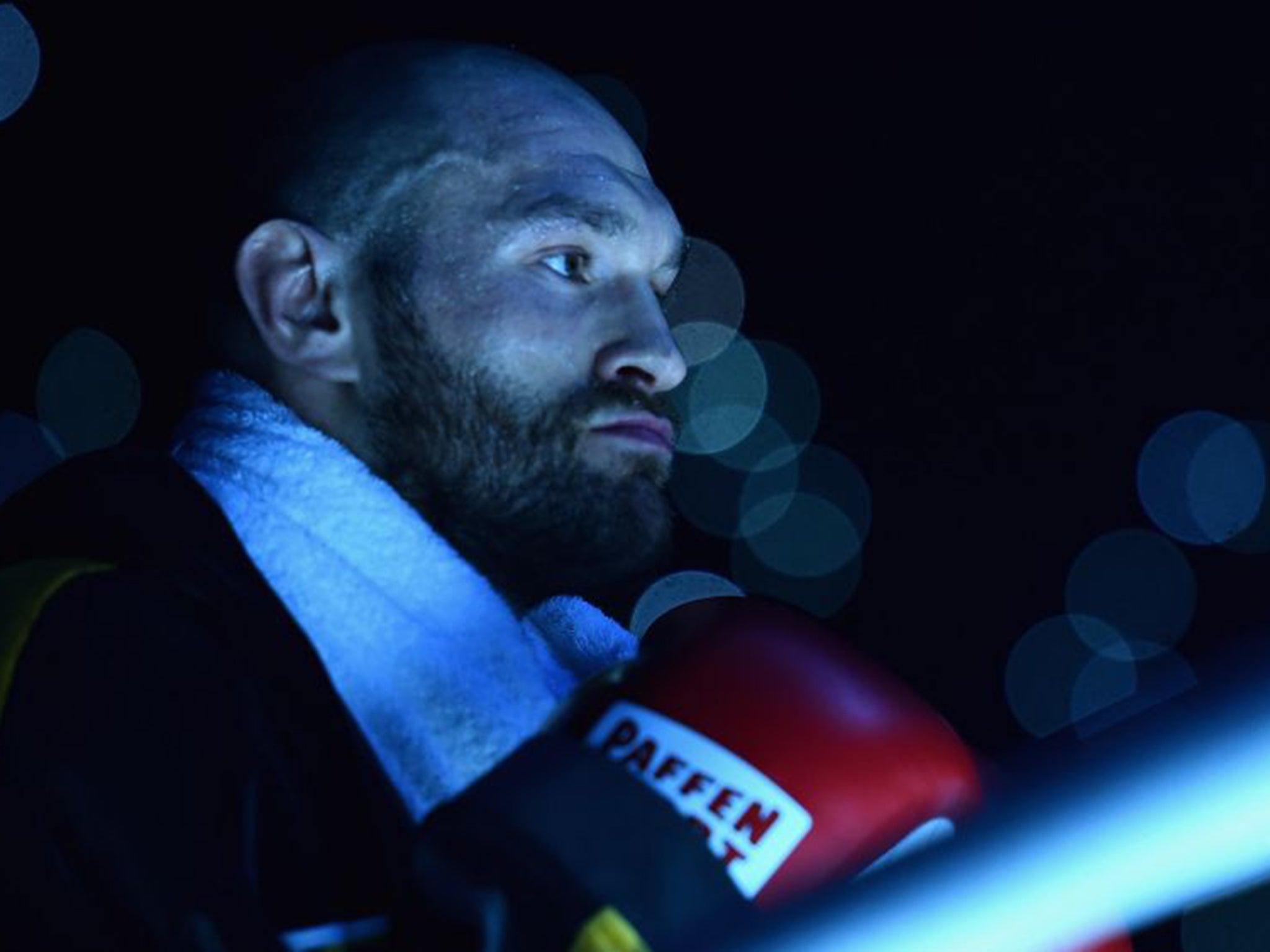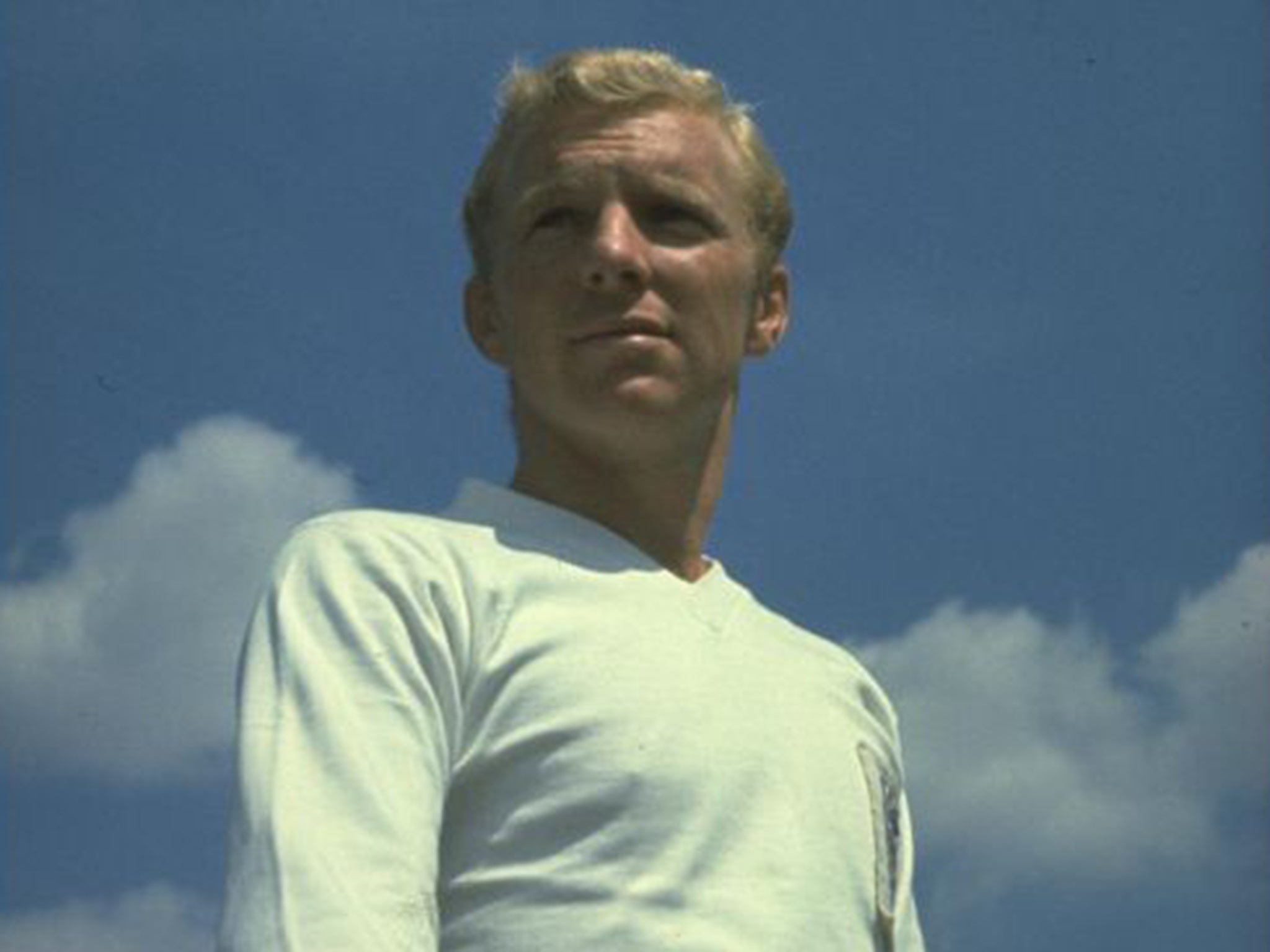The truth about sporting heroes like Tyson Fury is that they’re human too
Whatever you think about the controversial boxer, the brief for world heavyweight champion does not include charm

Fuelled by the interventions of government ministers, fellow sports professionals and many a member of the general public, the Tyson Fury controversy has been burning all week. At the time of writing Mr Fury remains on the shortlist of the BBC Sports Personality of the Year Award, but the issue is by no means settled.
The minister for sport has urged the corporation to “make a decision” about his suitability. The world men’s long jump champion, Greg Rutherford withdrew from the contest only to bounce back after asking himself: “Do I really want to disappoint my own family because of a bigot’s views? The answer was no.”
Meanwhile, 150,000 people have signed a petition demanding the BBC wield its censorial axe and there has been further trouble about some of Mr Fury’s off-the-cuff remarks about homosexuality. The newly crowned world boxing champion has even turned up in the pages of Private Eye in a spoof “statement” which thanks Barbara Slater, head of BBC Sport, for her support “as she’s really fit and scrubs up well”, while warning that enthusiasm will wane should she turn out to be “a Lesbo, in which case she should burn in hell”. It should be added that Mr Fury is a zealous Christian and believes that he will win the BBC award as “Good always defeats evil”.
As the theologians among us will perhaps want to remind him, it depends what you mean by “good”. As with the Pirelli calendar, I have no idea at what I ought to think about Tyson Fury. On the one hand, he comes out with the kind of nonsense that would have disgraced a suburban golf club in the days of Harold Wilson’s first administration. On the other, there is a definite sense of someone playing to the gallery and glorying in the offence he causes. At the same time, a part of me rather thinks that views like this ought to get a public airing every now and again so that we can remind ourselves that a substantial number of the country’s male population shares them. So much of what passes for public debate in the liberal-minded media is so determined to airbrush out the opinions and prejudices that are not to its taste that to see them raise their head above the parapet can sometimes be a bracing experience.
Then again, it is possible – just about – to sympathise with Mr Fury’s obvious contempt for the newspapers and television channels that have now started to take an interest in him. His argument, if it could be formally stated, would doubtless be that his only duty is to excel in his chosen sport, that the position of “role model” wished on to so many champions by their fans is of no interest to him, and that his views on gender equality are his own affair. No point in suggesting to him that with the ascent to public figure-hood comes responsibility; it is beyond his frame of reference. Boxers are there to win fights and if, outside the ring, they lack the charm of a Frank Bruno or a Henry Cooper, then when did charm ever secure a Lonsdale belt?
All this naturally returns us to the great oxymoron that has landed Mr Fury in so much trouble: the idea of the “sports personality”. After all, whoever said that a sportsperson had to have a personality, or that the personality, once exposed to general view, should encourage onlookers to admire it? The BBC’s entire sporting operation, it might be said, is based on the notion that footballers, gymnasts and athletes have a fascination that extends beyond their particular specialism, when all the evidence suggests that the reverse is the case, and that all the interviews conducted at the trackside during major championships are so much wasted camera film.
Not, of course, that the BBC – or any other television channel – can be blamed for attributing superhuman and by implication moral qualities to its sporting exemplars, for in doing so it is continuing a mythologising process that has been in train for well over a century and which, in local terms, has been going on since the days of W G Grace and Mr Fury’s predecessors in the early Victorian ring. A process, more to the point, that however glamorously pursued is nearly always compromised by the nature of the material it has to work with.
Fiction in the 19th century, for example, is crammed with minor characters drawn from the world of boxing – Thackeray’s “Tutbury Pet”, Dickens’ “Game Chicken” – none of whom knows anything beyond their professional beat, and when Mr Toots in Dombey and Son shows the “Chicken” his prospective father-in-law all the latter can say is that he’s as stiff a cove as he ever did see.

Here in Britain, the really decisive twitch on the thread of sporting legend was provided by the 1966 football World Cup, which instantly transformed a collection of young and predominantly working-class English men into the modern equivalent of the Norse gods – titanic figures permanently a-course across the endless greensward, immortal and invincible. The discovery that they ate, drank, slept and defecated like anyone else could be deeply disconcerting.
I can remember standing in the bowels of Norwich City’s Carrow Road ground sometime in the early 1970s, notebook and pencil in hand, as a tall, jowly figure who clearly enjoyed a pork pie or two lumbered into view. “Mr Hurst,” I quavered. “Please could I have your autograph?” But Geoff Hurst – Sir Geoff, as he is now – swept heedlessly on, whereupon another juvenile illusion perished and died.
It was the same with that other A-grade Corinthian Bobby Moore, with the ghost-writer of whose autobiography I once spent an instructive half-hour, listening to tales of “raucous Bobby” with his fondness for dancing on tables and lowering his trousers during the course of bacchanalian post-match romps. The news, towards the end of his all-too short life, that he had been taken ill “while editing the sports pages of the Sunday Sport” cut like a knife. Bobby Moore working for one of David Sullivan’s porn-sheets! Oh my idol, where have you gone? All of which ignores the fact that ex-sportsmen from the age in which sporting personalities were relatively under-remunerated had livings to make as well.
All of which returns us to Tyson Fury, who in sporting terms may be regarded as an anachronism, a throwback to an age when the only thing that was required of sportspeople was that they should be good at sport. By chance, Tuesday’s Independent carried the obituary of another sports “personality”, the former boxer, wrestler, cyclist and circus performer Mick Murphy. Mr Murphy, who entered the 1958 Ras Tailteann, Ireland’s premier cycling event, only six months after taking up the sport, was, among other exploits, famous for coming from nowhere to win the second stage, cycling a further 30 miles, dismounting in a field to lift weights for an hour and then draining blood from the vein of an unsuspecting cow to refill his water bottle.
Would Mr Murphy have been shortlisted in the Sports Personality of the Year award, had this been known? Probably not, although it is a shame that he and Tyson Fury couldn’t have got up a tag team together. But it is possible to believe that Mr Fury is simultaneously the holder of some deeply disgusting opinions and the victim of a dismal little confidence trick that has been practised since at least the Victorian age – the idea that, with one or two prominent exceptions, the men and women who play sport have very much to contribute to the world beyond it.
Join our commenting forum
Join thought-provoking conversations, follow other Independent readers and see their replies
Comments